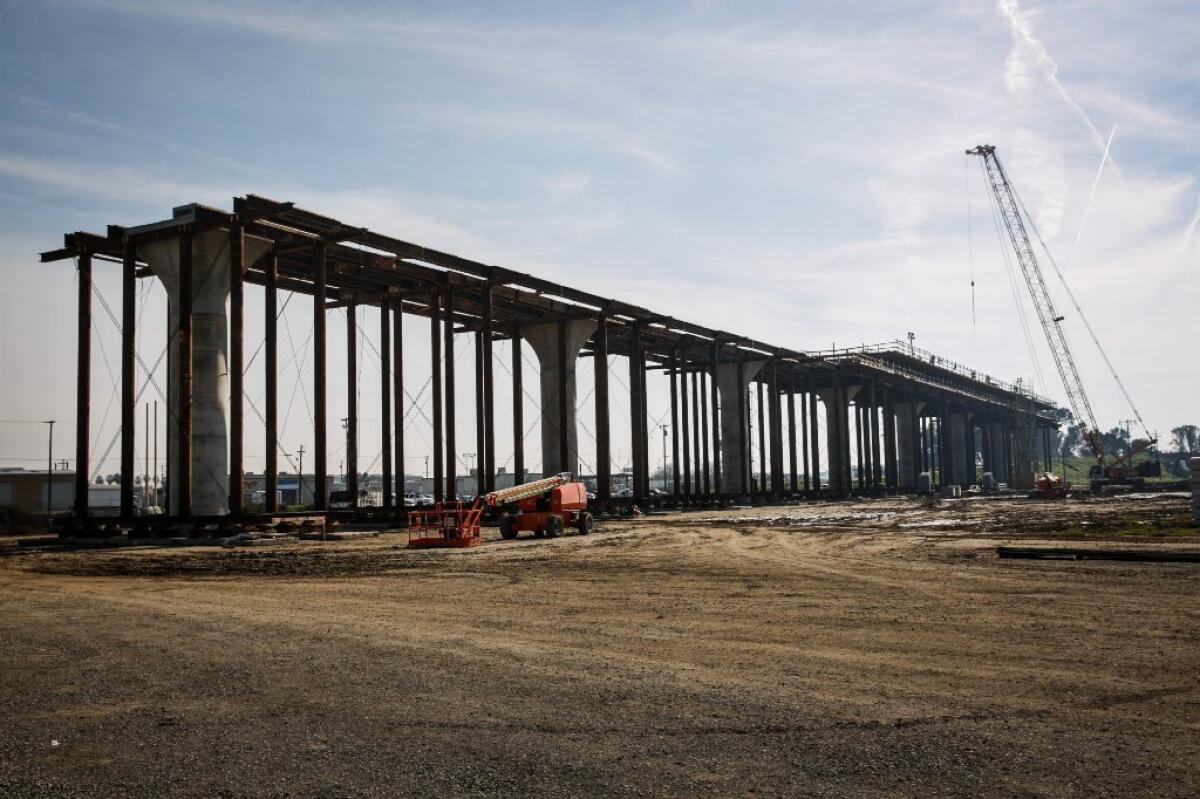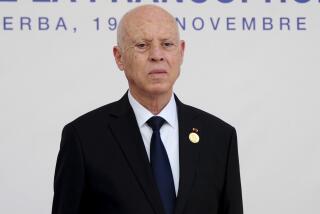California Republicans ask Trump administration to block bullet train funding

California’s House Republicans have asked the Trump administration to block a pending federal grant for the state’s high speed rail project until an audit of the project’s finances is completed.
The letter, signed by all 14 members of the state’s GOP delegation, including House Majority Leader Kevin McCarthy, was sent to Transportation Secretary Elaine Chao. It cites cost increases, reductions in the project’s scope and its failure to attract private financing.
President Trump has charged that “California in many ways is out of control” but he has also vowed to massively increase the nation’s infrastructure spending. Trump’s and Chao’s view on the bullet train, the nation’s largest infrastructure project, is largely unknown so far. The unified position against further federal funding by the state’s own Republican representatives will be an early and severe test of the new administration’s direction.
If the administration cuts off related bullet train funding and attempts to enforce stricter controls on existing multibillion dollar grants, it could cause significant stresses on a project that is already facing increasing costs and schedule delays. Ultimately, California may have no other choice than to increase its own commitment to Gov. Jerry Brown’s signature project, even as it faces a projected budget deficit.
The letter, dated Jan. 24, 2017, asks Chao to stop approval of a $650 million grant that the Transportation Department could make as early as next week as part of an effort to install an electrical system for the Caltrain commuter rail service in the Bay Area that the bullet train would eventually use from San Jose to San Francisco. The grant is a key part of the $2 billion electrification funding. The California High-Speed Rail Authority is also putting in about $730 million in funding from bonds, based on an expectation that it can get overcome litigation that has tied up the bonds for years.
The letter notes that the original cost of the system was estimated at about $33 billion for a system that would run from San Diego to Sacramento. Since then the cost has risen to $64 billion, while the scope of the project has been sharply curtailed. It also cites a risk analysis by the Federal Railroad Administration projected a potential $3.5 billion increase in cost in the first segment of the project from Merced to Shafter. The analysis was made public last month by The Times.
The congressional letter, which was obtained by The Times, says “providing additional funding at this time to the authority would be an irresponsible use of taxpayers dollars. In light of the new revelations from the confidential FRA report, we request no further monies be granted to the [California High-Speed Rail] Authority or the state of California for high speed rail until a full and complete audit of the project and its finances can be conducted and those finding be presented to the public.”
The letter did not specify who would conduct such an audit, but House staffers said it could be the Transportation Department Inspector General or the Government Accountability Office. Such wideranging audits often take many months and once completed could be subject to congressional review or hearings that would take additional time.
The grant, which was put into final motion in the closing days of the Obama Administration, required a 60-day notice to key members of Congress before it could be approved. That 60-day window closes on Feb. 17.
If the grant is not funded some time this month, it would have potentially devastating effects on the Caltrain’s electrification project, said Seamus Murphy, the rail system’s chief communications officer. The rail system, operated by a joint powers agency on the Peninsula, already has signed contracts that pledged to give a formal notice to begin work by March 1. If it fails to provide that notice, the agency could incur penalties “so severe that we might not be able to do the project,” Murphy said.
If the project is not completed, the bullet train agency might have no choice but to electrify the line itself in future years at a cost of about $2 billion. Murphy called that a “dooms day scenario” that would deny commuters on the system ki
C
Follow me on Twitter @rvartabedian








